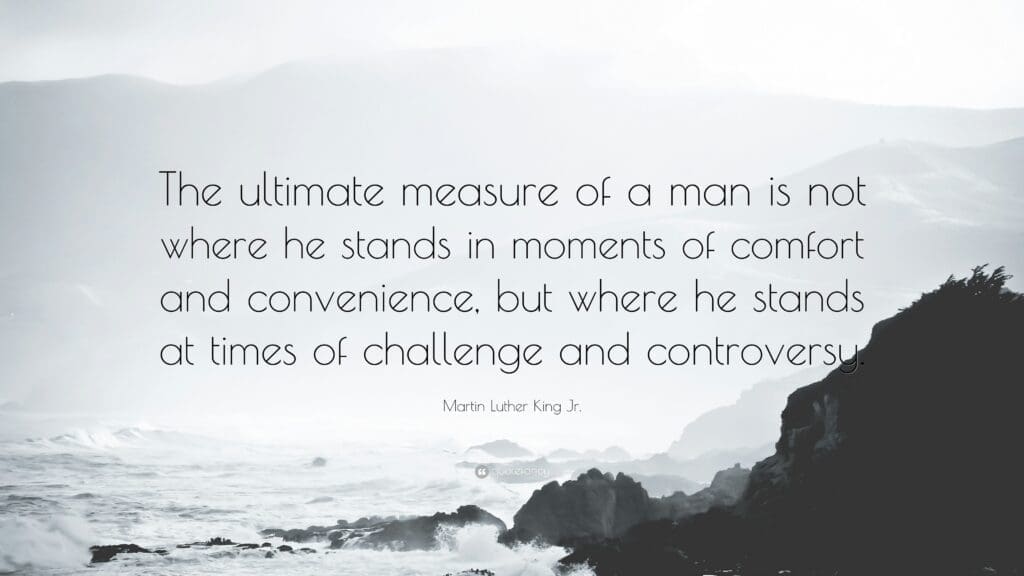Estimated reading time: 7 minutes

Imagine a meandering back road, flanked by lush trees and vibrant wildflowers, with sunlight filtering through the canopy. This route is more leisurely than the highway, yet it offers breathtaking vistas, cleaner air, and the chance to uncover hidden treasures along the way. Such a journey mirrors the high road in life—a path requiring patience, effort, and self-discipline, ultimately leading to unforeseen rewards.
Taking the high road may seem inconvenient, especially when impulsive reactions or snarky retorts come more easily (but let’s be honest. Sometimes snarky just feels good and is deserved). However, embracing grace and composure leads to deeper rewards: personal growth, strengthened relationships, and a legacy of integrity. Here’s why the high road—while winding and occasionally exasperating—is worth the journey.
The Slow Burn of Growth
Much like a scenic drive, taking the high road isn’t about speed. It’s about the journey and what you learn along the way.
One of the most powerful ways we grow is through the choices we make in challenging situations—particularly when it comes to how we handle conflict and adversity.
Building Character Through Restraint
Every time you resist the urge to lash out or retaliate, you’re strengthening your inner resolve. These moments of restraint are like repetitions at the gym—each one makes you emotionally stronger and more resilient. Over time, they help you build the character that can weather life’s inevitable storms.
Consider Mahatma Gandhi, who once said, “You may never know what results come of your actions, but if you do nothing, there will be no result.” Gandhi’s philosophy of nonviolence required immense restraint and composure, but it ultimately forged a movement that changed history. Each small decision to hold back from reacting impulsively contributes to a legacy of strength and influence.
But Gandhi didn’t live in the age of social media, where anyone with WiFI and a keyboard can launch an all-out assault in minutes. He never had to contend with someone slamming his company daily—for eleven years. Even Gandhi might have felt compelled to unload on that guy.
Just as a strong foundation supports a lasting structure, the strength you build through restraint becomes the bedrock of trust and respect in your relationships.
Cultivating Trust and Respect
People notice how you handle conflict, especially when tensions are high. Responding with grace and composure—even when it feels undeserved—builds a reputation of trustworthiness and integrity. These qualities are like the scenic vistas along the route—they take time to appear, but when they do, they’re breathtaking.
Earning trust through grace and composure doesn’t just build relationships—it lays the groundwork for decisions and actions that stand the test of time.
Creating Sustainable Outcomes
The quick fix often feels good but rarely stands the test of time. Whether it’s a hastily written email or a biting remark, reactive decisions tend to crumble under pressure. High-road choices, on the other hand, prioritize long-term harmony. They’re like a sturdy bridge on that scenic route—built to last, even when the going gets rough.
The Hidden Costs of Shortcuts
Taking the metaphorical highway—the fast, reactive path—might seem appealing, but it often comes with hidden tolls:
Burned Bridges
A hasty, defensive reaction might feel satisfying, but it can damage relationships permanently. Whether it’s a harsh word to a friend or a public outburst at work or online, these moments can leave scars that are hard to heal.
Emotional Exhaustion
Venting anger or engaging in petty disputes drains your mental energy. Instead of moving forward, you’re stuck replaying arguments and stewing over grudges. That mental clutter keeps you from focusing on what truly matters.
Tarnished Reputation
Reacting poorly in difficult moments can overshadow your accomplishments. While the low road might win you a momentary “victory,” it’s the high road that ensures a legacy of respect and trust.
The Rewards of Patience
The scenic route’s slower pace isn’t a drawback; it’s an opportunity to experience and appreciate the journey. Similarly, the high road rewards those who choose it with benefits that ripple across their personal and professional lives.
Gaining Perspective
When you take the high road, you’re stepping back from immediate emotions to see the bigger picture. This broader perspective often reveals insights you’d miss in the heat of the moment. What seemed like an attack might be a misunderstanding. What felt like an insurmountable obstacle might turn into an opportunity for growth.
The Roman emperor and Stoic philosopher Marcus Aurelius advised: “You have power over your mind—not outside events. Realize this, and you will find strength.” Aurelius died in the year 180, not 1980, so he never dealt with a canceled flight, where many people routinely go off on the airline gate attendant. Those people should heed Aurelius’s words of wisdom despite them being almost 2000 years old. You have zero control over a flight cancellation, and neither does the flight attendant. LET IT GO.
By choosing the high road, you’re not just avoiding negativity; you’re reclaiming control over your perspective and mindset.
Peace of Mind
Letting go of grudges and toxic interactions is like clearing your mental landscape. Without the weight of negativity, you’re free to focus on what’s important—a creative project, a cherished relationship, or simply enjoying a moment of peace and zen.
Unexpected Opportunities
Consistently taking the high road creates a ripple effect. People trust you, respect you, and want to work with you. Whether it’s a career advancement, a collaboration, or a deepened friendship, these opportunities are often the scenic route’s hidden treasures.
However, staying on the high road requires consistent effort and intention—something that practical tools and strategies can help you sustain.
Practical Tools for Staying the Course
Taking the high road isn’t always easy, especially when you’re faced with provocation or criticism. Here are some tools and strategies to help you stay on track:
Journaling
When emotions are high, writing down your thoughts can help you constructively process them. Journaling lets you vent privately, gain clarity, and explore solutions before reacting publicly. Over time, it can also help you track patterns in your behavior and responses, making it easier to choose the high road consistently.
You can journal on your phone’s notes app, in a Google doc, or use a third-party app like Day One (I appreciate its flexibility and reminders).
Continuing the scenic route metaphor, think of journaling as a map helping navigate difficult terrain.
Mindfulness Apps
Practicing mindfulness can train you to pause and respond thoughtfully rather than impulsively. Apps like Headspace, Calm, or Insight Timer offer guided meditations and exercises to help you center yourself, even in the midst of conflict.
Role-Playing Scenarios
Before addressing a challenging situation, practice your response with a trusted friend or mentor. Role-playing can help you refine your approach and build confidence in handling conflicts gracefully.
Utilize role-playing to prepare for unexpected curves on the road.
Reflective Questions
Ask yourself questions like:
- “What’s the bigger picture here?”
- “How will this choice affect my relationships and reputation in the long term?”
- “Is this worth my energy, or can I let it go?”
These questions provide a framework for thoughtful decision-making, which can be applied in both professional and personal scenarios.
The Scenic Route in Action
Consider a professional setting: a coworker takes credit for your idea in a meeting. The low road might involve calling them out publicly, while the high road might look like calmly addressing the issue one-on-one afterward. While the latter takes more effort, it’s far more likely to preserve workplace harmony and build mutual respect.
Or think about a personal scenario: a friend says something hurtful. Instead of snapping back, you choose to pause, reflect, and later express your feelings constructively. This approach diffuses tension and strengthens the bond by fostering understanding.
Final Thoughts
Choosing the high road, akin to taking the scenic route, may not be the quickest path, but its rewards—personal growth, enduring relationships, and inner peace—are unparalleled. As Dr. Martin Luther King Jr. stated, “The ultimate measure of a man is not where he stands in moments of comfort and convenience, but where he stands at times of challenge and controversy.”
And, of course, there are times when you shouldn’t take the high road. More often than not, however, it’s the best path.
The next time you find yourself at a crossroads, consider the lasting clarity and connection the scenic route offers. Reflect on your choices, embrace patience and integrity, and embark on the journey worth taking.

Comments
2 responses to “Taking the High Road: The Scenic Route Leads to Growth”
Excellent. Thanks very much 🙏
Thanks for reading, Stuart!